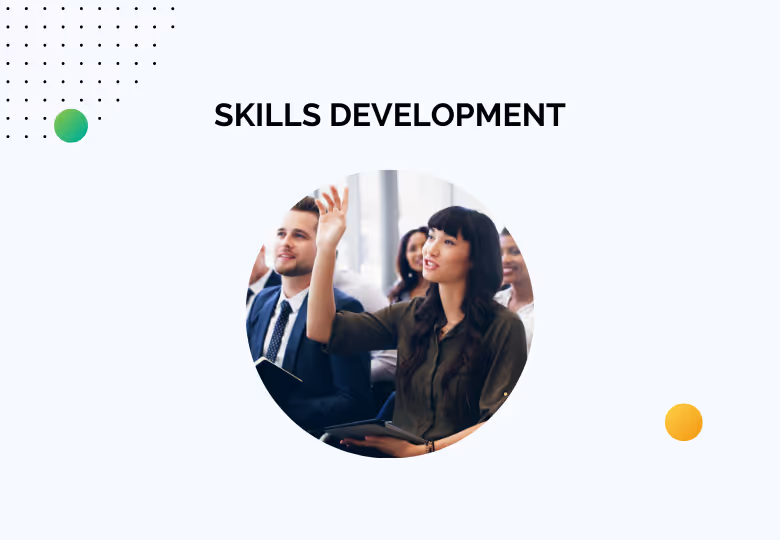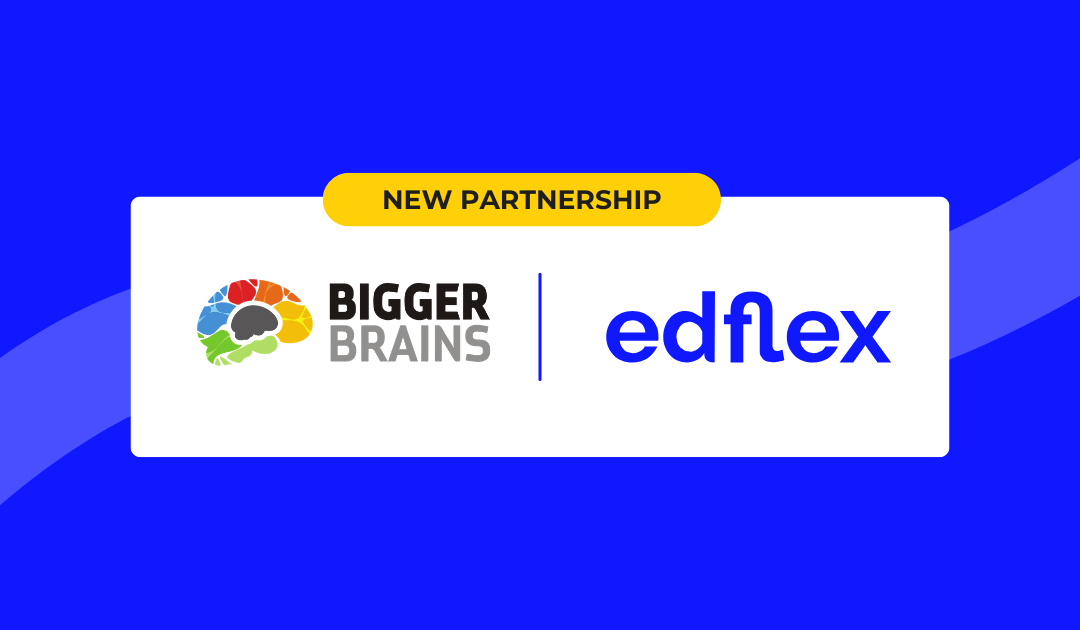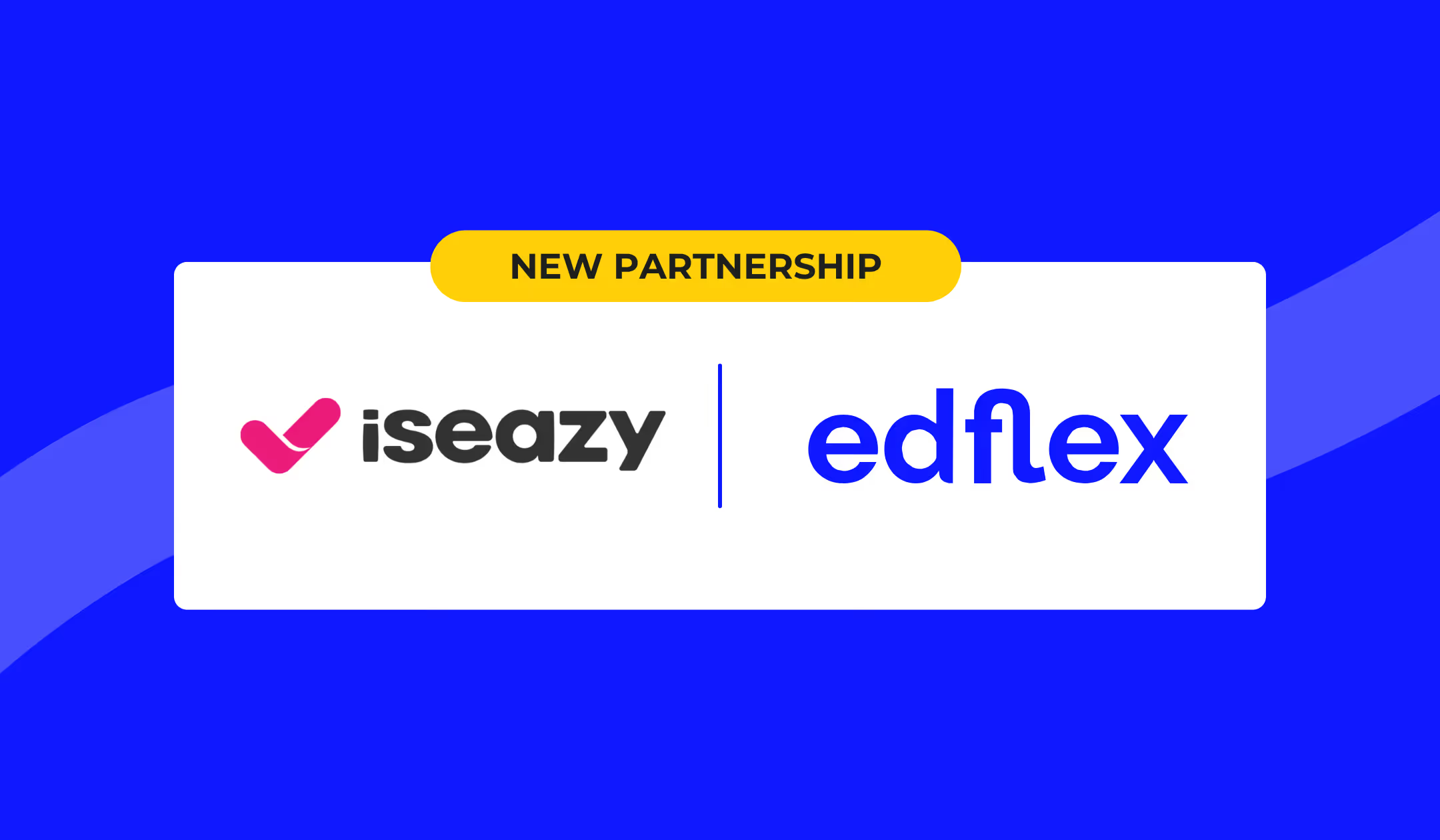Identify the learning needs of your learners and discover the best approaches to develop hard and soft skills
Each employee develops throughout his or her career path, which is the sine qua non condition for performance and the achievement of personal objectives. However, skills in companies evolve very quickly. They have an average lifespan of 12 to 18 months. For this reason, it is essential to ensure that your employees' skills are maintained and updated.
By encouraging learning and professional development, you improve the competitiveness of your company.
Upgrading skills: Definition and benefits
Before deploying a learning plan, it is necessary to define precisely what "upgrading" means and what it brings to both the company and the employees.
What does "upgrading" mean?
Up-skilling refers to the acquisition of new skills by an employee, who is then able to carry out his or her tasks independently and efficiently. In addition, an employee who regularly upgrades his or her skills will be more motivated and more involved in the company.

The development of employee skills is also important to encourage mobility within the company. Accompanying the development of employees is a progressive process that goes hand in hand with a solid strategy linked to professional learning.
Why is this important?
Skills upgrading meets various challenges and represents serious advantages for both the company and the employee.
Updating professional skills
Updating skills is important for a company to remain competitive. By improving the mastery of methods and tools, the company ensures that its employees are more productive and flexible.
For the employee, developing his or her skills is an opportunity to feel more comfortable in the various tasks entrusted to him or her. By gaining confidence, he or she is also happier in his or her job.
Improve employability

The job market evolves very quickly as a result of social and technological changes. For this reason, it is essential to not be overwhelmed by events, as the professional future is sometimes uncertain.
Setting goals and continuously developing your skills is an ideal approach to improve your employability. In this way, if it is necessary to change jobs, the transition can be made more serenely.
Move up the hierarchical ladder
Finally, the evolution of skills often goes hand in hand with professional development. By gaining new knowledge or improving current skills, it becomes possible for the employee to move up the corporate ladder through professional mobility.
It is also very relevant to adopt the reskilling approach to change jobs within the same company according to the opportunities that arise. Every employee should have an equitable access to learning in the workplace.

What are the necessary skills?
If corporate learning is an essential element for the success of a company, but also for the career of an employee, it is still necessary to identify the necessary skills. These skills can take different forms and are of course complementary.
Theoretical knowledge or know-how
In the first place, we have theoretical knowledge. This knowledge represents all the knowledge acquired through learning. We are talking here about what was previously acquired through studies, learning, reading or personal experience. This is the employee's intellectual baggage, so to speak.
Practical knowledge or hard skills

Then we have the practical knowledge. This is the practical application of the theoretical knowledge, and depending on the sector and the position held, the number and content of practical knowledge required may vary. However, they are essential to the success of the missions entrusted to the employee.
Here are 3 hard skills that are in demand on the job market:
- Data analysis: This skill allows you to use numbers and facts to define and improve strategies.
- Sales and Business Development: This allows you to effectively sell a product through sales and negotiation skills.
- Code and computer skills: This last skill is ideal for promoting the company's visibility via a website or an application.
Soft skills

Increasingly popular with companies, soft skills are human and behavioral competencies that help to improve relations between employees, between management and employees, and between the company and its customers. If soft skills are worked on within a company, mutual aid, teamwork and creativity are also favored.
These 3 soft skills can help you to get the most out of your job:
- Public speaking: Knowing how to speak in public is as important for managing a meeting as it is for presenting a product or service to people outside the company.
- Emotional intelligence: This allows us to decipher the emotions of others and understand how they manifest themselves in us. It is an essential element of agile methods to identify blocking points within teams.
- The ability to learn: A key learning skill, knowing how to learn quickly and well is an important element of an employee's continuous development.
The limits of corporate learning

It is sometimes difficult to increase skills quickly in a company. In fact, skills development initiatives may be too rare or poorly adapted to the real needs of employees.
Learning deadlines
First of all, having the opportunity to follow a learning course in a company can sometimes take a long time. To explain this fact, it is necessary to list all the elements that can influence the progress of learning courses, such as the availability of trainers, the financial resources available, a dedicated time in the schedules, without forgetting the will of the management.
Indeed, if there is no strong will on the part of the management or the executive team to support the development of skills, the latter can become complex.
Poorly adapted learning
The learning offered can also not correspond to the needs of the employees, so that the learning skills are sometimes already outdated in view of the reality in the field. Similarly, face-to-face learning sometimes has disappointing attendance rates, as more flexible distance learning is better suited to the needs of a large number of employees.
Employees are increasingly used to learning via Google or YouTube. learning must therefore adapt to their expectations, especially as practices continue to evolve.

How can we support employees' skills development?
Even if the company can be a great ally in the development of skills, employees are sometimes tempted to take things in hand. Indeed, it is possible to train independently outside of work time. However, this is not necessarily the ideal solution, as employees can then take low quality learning or learning that is not aligned with the company's challenges. Therefore, it is important for management to be proactive and support employees in their learning path.
Build a learning plan
The first thing to do is to construct a learning plan, which will be useful for both individual and corporate learning.
Identify learning needs
Start by studying the needs of each employee. Take the time to identify the skills they need to acquire or those they need to strengthen. To find these skills, encourage your employees to ask themselves some basic questions:
- What skills do I need to perform a task optimally?
- What skills or attitudes do I need to strengthen to be more effective?
- What job or position would I like to move into in the future?
By asking yourself these questions, you will be able to identify the specific learning needs of each employee. You will then be able to inform your hierarchy or look for learning courses adapted to these specific needs.
Define the learning method

Depending on the constraints and preferences of your teams, it is essential to define an appropriate learning method. This learning method must be as close as possible to the habits of your employees so that they remain motivated and achieve the learning objectives.
Once again, your employees need to answer several questions:
- Should I choose individual learning or corporate learning?
- Is distance learning or face-to-face learning better suited to my needs?
- Which days and times can be dedicated to my learning?
The more time you take to accurately define your employees' expectations, the easier it will be to choose a learning program.
Find financing
Of course, it is important to ask yourself the question of financing. If your employees are taking an in-company learning course, it is up to management to pay for the learning sessions.
However, if they want to train independently, they must find the funds to pay for the learning themselves.
There are two options:
- Pay for the entire learning with their own financial resources;
- Ask their company to pay for all or part of the learning chosen.

New uses in learning
As we have seen, the deployment of learning in companies is sometimes long and laborious. Therefore, it is very relevant to consider other ways of learning. They do not necessarily exclude traditional in-company learning, but on the contrary can complement the increase in skills.
Self-learning
The simplest way is to opt for self-learning. Employees remain in control of their own learning path by choosing the type of learning, its content and the time they wish to devote to it.
To encourage self-study, a wide variety of educational content must be made available to employees. This content can be accessed via various devices (computer, smartphone, tablet, etc.) and formats (articles, videos, podcasts, books, etc.). The goal is to adapt to your teams' needs to improve engagement with the learning offered.
Peer-to-peer sharing
Why not take advantage of teamwork to acquire skills? Peer-to-peer learning is a learning method where different employees share their knowledge. Employees learn with confidence from trainers they know and whose skills they have already evaluated.

To encourage this type of learning, it is necessary to identify employees who are willing to share their knowledge. Then, don't hesitate to take every opportunity to organize knowledge sharing sessions. These can take place during conferences, meetings or company seminars. Ideally, the company can design a structured and effective peer-to-peer learning program.
Corporate Mentoring
When a new talent arrives in a company, it is not uncommon for management to appoint a mentor. The mentor is a guide for the newcomer. His or her role is to accompany the new recruit as he or she assumes the position, increases his or her skills and becomes more independent. Mentoring is therefore a very favorable time to learn and develop skills.
Clear objectives, operating rules and precise procedures must be put in place to guarantee the effectiveness of this approach. In addition, it is essential to select volunteers to become mentors. They must be able to share their knowledge and help the newcomer adapt to his new environment. As the mentoring sessions progress, you will succeed in optimizing this process.
Ramping up: a collective challenge
To enable your employees to quickly gain competence, you need to integrate them into your learning strategy. By taking their needs and feedback into account, you will be better able to offer them appropriate learning while meeting the company's challenges. By combining hard skills and soft skills in innovative learning, you will significantly improve your chances of reaching your objectives by succeeding in your collective challenge.



















